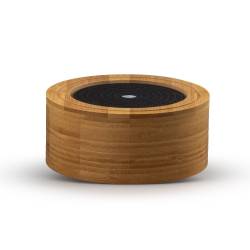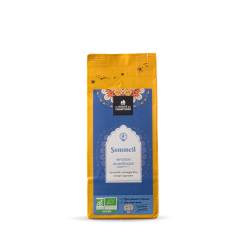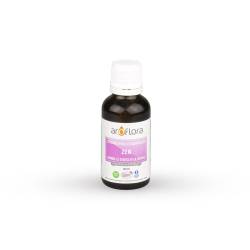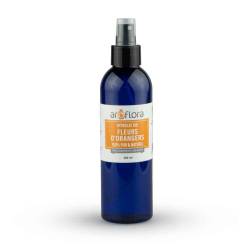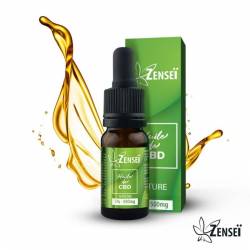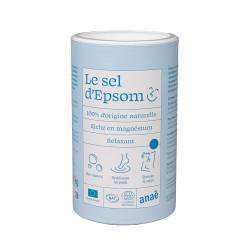Stress has become an ever-present companion in our modern lives, impacting our physical and mental well-being. Whether at work, in our personal life or in the face of everyday challenges, it can sometimes seem inevitable.
However, understanding its mechanisms and learning to manage it is essential to preserve our health. In this article, Julie reviews the causes of stress , its effects on the body , and above all, offers us effective techniques to soothe it and find inner balance .

What is stress?
Originally, stress is a survival reflex. Our body reacts to danger = I flee or I fight ! It is a psychological reaction of the body (physical and psychological).
This automatic reflex launches a succession of nervous and hormonal reactions. The reactions follow one after the other and cause bodily disturbances: increased heart rate, more jerky breathing, the heart and lungs are put under tension.
These reactions are useful in times of danger, but they can harm the body if repeated too often. They then become chronic and can lower immunity.
Chronic stress has become an enemy of our modern societies. The causes of stress can be multiple because we are not all equal when faced with stressful situations.
Some examples of causes of stress : diet, vitamin and mineral deficiency, work, sedentary lifestyle, relationship, lack of contact with nature, etc.
What are the physical and psychological signs of stress?
Physical and psychological signs indicate that the present stress is lasting.
| Physical signs | Psychological signs |
|
Feeling cold Headaches Skin problem Sweaty hands Tight throat Difficulties digesting Fatigue (...) |
Irritability Sleep problems Nervousness Mood swings Demotivation Difficulty concentrating Hyperactivity (...) |

Coping with stress better is possible:
Alimentation anti-stress
Stress will cause some losses in the level of necessary intakes, which is why diet will play a role against stress. Here are some examples of anti-stress foods:
- Foods rich in Magnesium (stress leads to a loss of magnesium): Whole grains, dried fruits, almonds, hazelnuts, walnuts, cashews, shellfish, fatty fish, banana.
- Foods rich in Vitamin B (stress causes loss of B6 and magnesium from B6): Wheat germ, raw egg yolk, legumes, meat, oilseeds.
- Foods rich in Anti-oxidants : All fruits and vegetables but in particular blackcurrants, citrus fruits, kiwi and cabbage; garlic and parsley, green tea and red wine (in moderation); oysters, wheat germ oil, almonds and hazelnuts.
- Foods rich in Omega 3 : Sardines, anchovies, mackerel, herring, rapeseed, flax, camelina and walnut oil.
- Foods rich in Taurine (it reduces magnesium leaks): It is produced by the body through meat, fish, oysters and nuts.
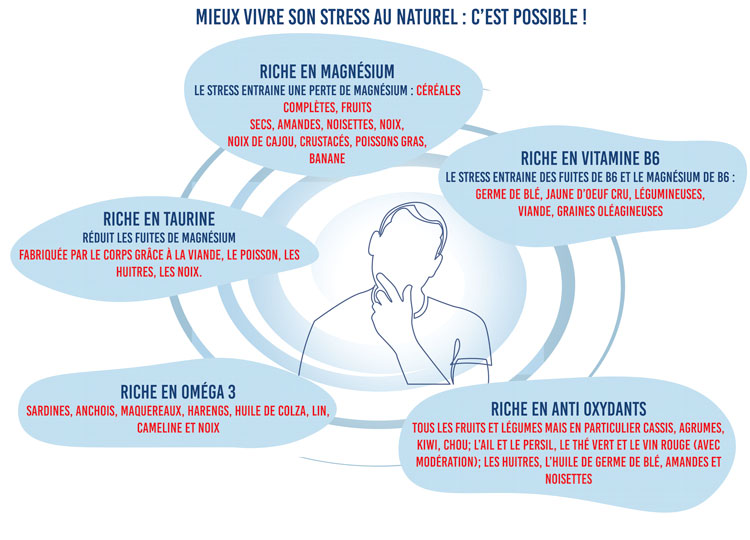
Techniques anti-stress
Il existe différentes méthodes pour diminuer son stress et mieux le gérer :
- Activité physique douce (mais pas après 19/20h pour faciliter l'endormissement) : Yoga, pilate, marche nordique, vélo, piscine, etc.
- Exercices de respiration : Respiration ventrale, cohérence cardiaque, respiration alternée.
- Compléments alimentaires (vous pouvez trouver des compléments multi vitamines et minéraux) : Magnésium, spiruline, Oméga 3.
- Se détendre : Massage bien-être, méditation, contact avec la nature, bains tièdes corps ou pieds, activités "plaisirs", réflexologie plantaire.
- Gestion des émotions (il est parfois nécessaire de se faire aider par un thérapeute) : Sophrologue, psychologue, acupuncteur, ostéopathe, conseiller en fleurs de Bach, naturopathe, etc.
- Plantes : Huiles essentielles (lavande vraie, laurier noble, petit grain bigarade, orange douce, camomille romaine, marjolaine à coquille, néroli) en massage ou en diffusion, Hydrolats (verveine, fleur d'oranger, tilleul), Infusions (verveine, lavande, camomille, marjolaine) et Bourgeons de plantes (figuier, tilleul, aubépine).
⚠️ Demander conseil à un professionnel pour l'utilisation des huiles essentielles et des compléments alimentaires.
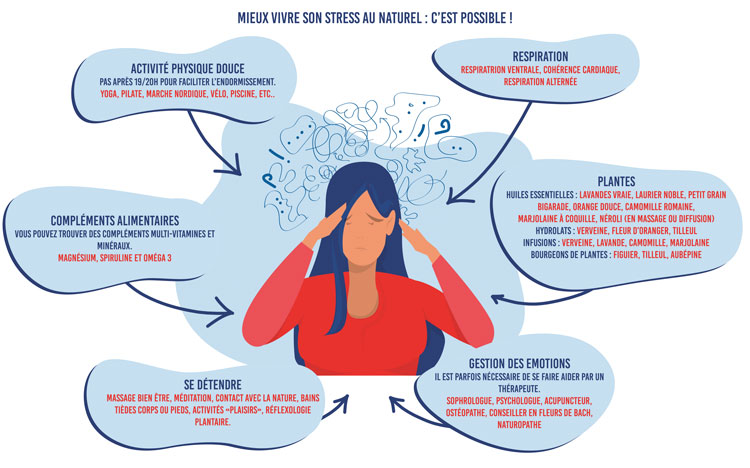
Linked products




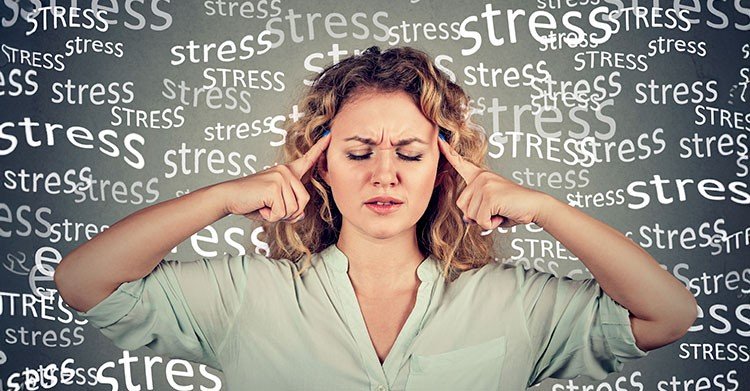
 By Julie Van Paepeghem - Naturopathe
By Julie Van Paepeghem - Naturopathe
